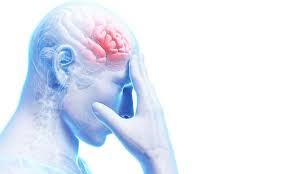Headaches
Headaches are one of the most common medical complaints and practically everyone will experience them at some point, regardless of age or gender. They can be a sign of stress or emotional distress or a result of a certain medical disorder such as high blood pressure, anxiety, depression, or migraine. People who suffer with chronic migraine headaches may find it hard to get themselves to work or school. A headache can occur in any part of the head, either on both sides of the head, or in just one location.

There are different types of headaches:
Primary headaches – headaches that are not the result of any other medical condition. These can include migraine, tension, or cluster headaches and can come on at any time and last for varying amounts of time.
Secondary headaches – these happen when another condition stimulates the pain-sensitive nerves of the head, meaning the headache symptoms are sometimes attributed to another cause. Examples include blood clots, bleeding in or around the brain, brain freeze, carbon monoxide poisoning, concussion, dehydration, glaucoma, and more.
Tension headaches – these are the most common form of primary headache. These headaches normally begin slowly and gradually and build up during the day. You may feel like you have a tight band around your head, a constant dull ache on both sides, or a pain spread from the neck. Tension type headaches can be either episodic or chronic. Episodic attacks usually last for a few hours or in some cases several days.
Migraine headaches – these may cause a throbbing pain usually on one side of the head, together with blurred vision, light-headedness, and nausea. Migraine is the second most common form of primary headaches and has a significant impact on the life of the individual.
Cluster headaches – these can last between 10 minutes and three hours and occur very suddenly once per day up to eight times per day for a period of weeks to months. In between there may be no headache symptoms and this headache-free period can last for several months to years. The pain caused by cluster headaches is normally one-sided, severe, sharp, and often typically located in or around one eye.
Thunderclap headaches – these are sudden and very severe. They reach maximum intensity in less than one minute and can last for up to several minutes. A thunderclap headache is often secondary to a life-threatening condition such a aneurysms, meningitis, intracerebral hemorrhage, and more. People who experience these sudden and severe headaches should seek medical advice immediately.
* As headaches can be a sign of a serious condition, it is important to seek medical advice if they become constant or severe*
How are headaches diagnosed?
A physiotherapist will ask you a number of different questions to determine the cause of your headaches. These include:
- Where in your head is the pain located?
- How often do you experience the pain?
- Do the headaches happen when you make a certain movement with your neck?
- Is there any neck pain?
- Is the pain constant or intermittent?
- What do you take to help control the headaches?
- How does it affect your daily life and activities?
- Is there a pattern to getting these headaches?
- Have you had your eyes and ears tested in the last year?
- Do you have any blurred vision, double vision, or dizziness?
Possible causes of headaches
- Certain foods
- Poor posture
- Stress
- Depression
- Alcohol
- Sleeping positions
- Medications
- Eye strain
How to treat headaches
Treatment depends on each individual case. Suggestions include:
- Pain medication
- Acupuncture
- Finding the right sleeping position
- Neck stretches and strengthening exercises
- Cognitive Behavioural Therapy
- Massage therapy
- Heat therapy
How we can help your headaches
We will do whatever we can to get you on the fastest route to recovery. Some of the treatment methods we use include:
- Mobilisations of the neck
- Strengthening exercises of the neck
- Myofascial trigger point release
- Stretching and range of movement exercises
- Acupuncture
- Functional exercises
